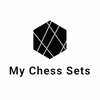Introduction to Chess and Sports
Chess, a strategic board game known for its intellectual rigor, has long been a subject of debate on whether it should be considered a sport. The distinction between what constitutes a sport versus a game is nuanced and often influenced by cultural, physical, and organizational factors. Advocates for classifying chess as a sport often cite its competitive nature and recognized status by the International Olympic Committee. However, there are compelling arguments as to why chess does not fit the conventional definition of a sport.
The Definition of Sport
Sports are generally recognized as activities requiring physical exertion, skill, and are typically competitive. They often involve physical training and aim to improve the physical abilities and skills of the participants. The International Association of Athletics Federations (IAAF) defines sport as encompassing an element of competition, requiring physical effort or skill, and governed by a set of rules or customs.
Lack of Physical Exertion
The primary argument against considering chess a sport revolves around its lack of physical exertion. Chess involves sitting across from an opponent, moving pieces on a board, and thinking strategically about future moves. The physical demands of chess are minimal compared to traditional sports like soccer, basketball, or athletics which require running, jumping, and physical stamina. While mental stamina is crucial in chess, it does not equate to the physical exertion typically associated with sports.
The Role of Physicality in Sports
While mental acuity, strategy, and skill are indeed components of many sports, these elements are secondary to physical involvement. In chess, the reverse is true; the mental aspect completely dominates the game. Traditional sports involve not only strategy and skill but also physical activity that affects the body's health and physical fitness. This physical component is a defining characteristic of sports that chess does not possess.
The Perception and Cultural Impact of Chess
Another aspect to consider is the cultural and social understanding of what sport represents. Sports are typically associated with physical health, teamwork, and dynamic action, elements that are less prominent in chess. Chess is often perceived more as an intellectual exercise or academic pursuit rather than a physical activity.
Chess as a Mind Sport
It's important to note that chess is recognized widely as a mind sport. This category includes games like bridge and Go, which, like chess, are highly strategic and require mental prowess rather than physical ability. Recognizing chess as a mind sport acknowledges its competitive nature and the skill involved without stretching the traditional definition of physical sports.
Conclusion
In summary, while chess is undeniably a competitive and complex activity requiring deep cognitive abilities, its classification as a sport is not apt when considering the traditional and more widely accepted attributes of physical sports. Chess does not involve physical exertion, which is a fundamental aspect of sporting activities. Thus, considering chess as a mind sport rather than a traditional sport might be a more accurate categorization, respecting both the nature of chess and the cultural understanding of sports.
Explore our large collection of luxurious chess sets!